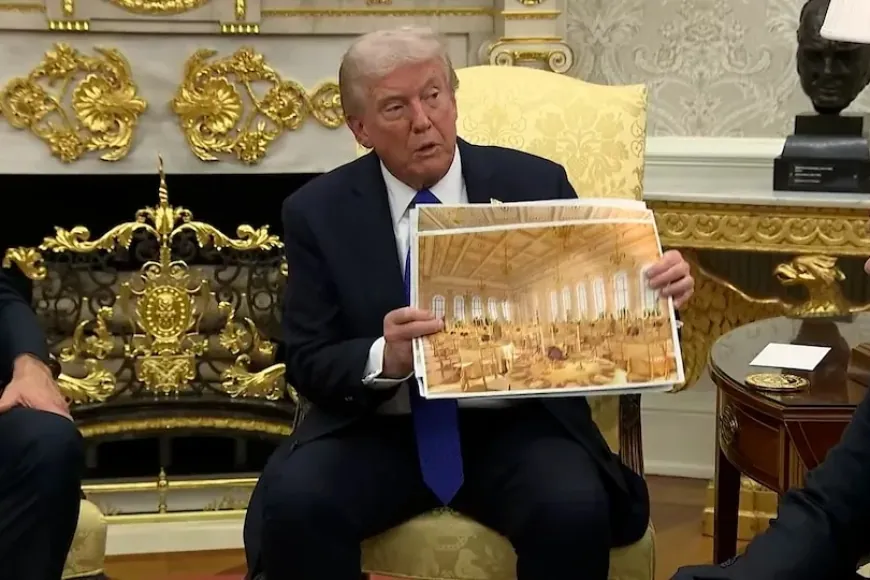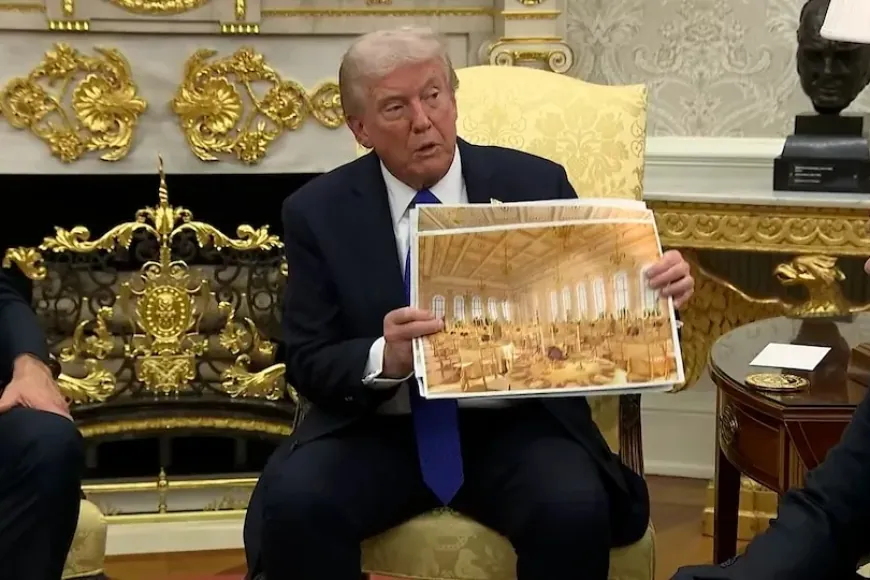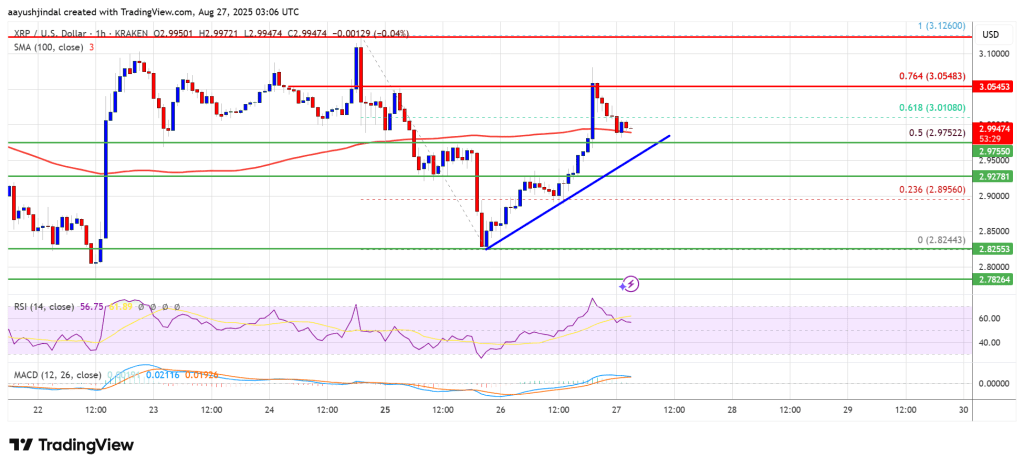
The White House confirmed this week that President Donald Trump’s planned $300 million ballroom will be financed not by taxpayers, but by a mix of private donors and the President himself. What began in July as a $200 million project has already ballooned by another $100 million, and the opulent design has become one of Washington’s most talked-about undertakings.
Images released by Trump during a press conference on Oct. 22 show a grand hall featuring marble floors, gold-trimmed pillars, and a ceiling inspired by Versailles. The ballroom, expected to host state dinners and high-profile galas, is being framed by supporters as a “symbol of American excellence.”
Major Contributors to Trump’s $300M Ballroom
The White House confirmed that a mix of prominent tech companies, crypto firms, and high-profile individuals are funding the $300 million ballroom project.
Corporate donors include Amazon, Apple, Meta, Microsoft, Google, and defense contractors such as Lockheed Martin and Palantir Technologies.
Crypto-related contributors feature Ripple Labs, Coinbase, Tether America, Gemini co-founders Cameron and Tyler Winklevoss, and Paxos co-founder Charles Cascarilla.
Individual donors include billionaire Stephen A. Schwarzman, energy executive Harold Hamm, philanthropist Betty Wold Johnson, and the family of Commerce Secretary Howard Lutnick.
While the White House has not released the exact contribution amounts, officials say these donations come from leaders who support the administration’s initiatives in technology, finance, and innovation.
| Corporate Donors | Donation Amount | Individual & Family Donors | Donation Amount |
|---|---|---|---|
| Amazon | $2M | Adelson Family Foundation | Not Disclosed |
| Apple | $1M | Betty Wold Johnson Foundation | Not Disclosed |
| Meta Platforms | $1M | Charles & Marissa Cascarilla | Not Disclosed |
| $1M | Edward & Shari Glazer | Not Disclosed | |
| Microsoft | $1M | Harold Hamm | Not Disclosed |
| Lockheed Martin | Not Disclosed | Benjamin Leon Jr. | Not Disclosed |
| Tether America | Not Disclosed | The Lutnick Family | Not Disclosed |
| Coinbase | $2M | The Laura & Isaac Perlmutter Foundation | Not Disclosed |
| Ripple Labs | $4.9M | Stephen A. Schwarzman | Not Disclosed |
| Comcast Corporation | Not Disclosed | Konstantin Sokolov | Not Disclosed |
| HP Inc. | Not Disclosed | Kelly Loeffler & Jeff Sprecher | Not Disclosed |
| Hard Rock International | Not Disclosed | Paolo Tiramani | Not Disclosed |
| Meta Platforms | $1M | Cameron Winklevoss | Not Disclosed |
| Micron Technology | Not Disclosed | Tyler Winklevoss | Not Disclosed |
| Lockheed Martin | Not Disclosed | Ronald Lauder | $5M |
| Comcast Corporation | Not Disclosed | William E. Ford | $1.25M |
Cryptocurrency Contributions to Trump’s Campaign
Crypto investors and companies have become significant backers of Trump. While he called Bitcoin a “scam” in 2021, his engagement with digital assets increased after launching the “Trump Digital Trading Cards” NFT series in 2022.
By 2024, several major crypto figures were donating to his campaigns. The Winklevoss twins each contributed $1 million in Bitcoin, and Ripple Labs provided nearly $4.9 million during inauguration-week fundraising. Other contributors included Coinbase, Kraken, and Crypto.com.
During the 2025 inauguration-week, Trump raised $239 million in total, with $18 million coming from crypto-related sources.
Key Crypto Legislation Under Trump
Two laws passed during Trump’s second term strengthened regulations for digital assets.
-
GENIUS Act (June 2025) – This law requires stablecoin issuers to keep full 1-to-1 reserves in U.S. dollars or Treasury securities, ensuring transparency and consumer protection.
-
Digital Asset Market Clarity Act (July 2025) – This act clarifies regulatory responsibilities between the SEC and CFTC, defining which digital assets are considered “commodities” versus “securities.”
Executives in the crypto sector, including Coinbase CEO Brian Armstrong, have publicly noted that these laws provide clear guidelines for digital-asset operations and reduce legal uncertainty for industry participants.
Trump Pardons Binance Founder
President Trump granted a pardon to Binance founder Changpeng “CZ” Zhao, who had served a shortened sentence after pleading guilty to federal charges in 2024 for failing to maintain adequate anti-money-laundering controls.
According to sources close to the administration, the pardon followed months of discussions between Zhao and Trump’s advisers. Zhao also provided input on aspects of the administration’s digital-currency regulations.
Also Read: Social Security 2026 COLA Delayed Due to Federal Shutdown



